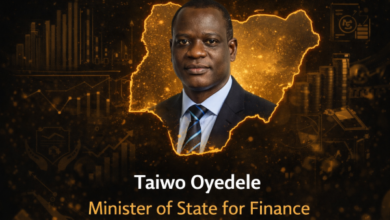NEWS
Independence: Nigeria’s prospects still bright despite challenges – Stakeholders
 As Nigeria gears up to mark its 62nd Independence Day anniversary on Oct.1, some stakeholders say this is the time for all Nigerians to assess the nation’s development milestones.
As Nigeria gears up to mark its 62nd Independence Day anniversary on Oct.1, some stakeholders say this is the time for all Nigerians to assess the nation’s development milestones.The stakeholders said in separate interviews with the News Agency of Nigeria (NAN) on Thursday that in spite of the numerous challenges that had and still confronted the nation since independence in 1960, Nigeria’s prospects remained very bright.
Mr Setonji David, the Chairman, Lagos State House of Assembly Committee on Information, told NAN that Nigeria has achieved an appreciable level of progress, despite the social and economic challenges.
David said that though the aspiration of the country in view of its huge potential had not been met, Nigerians should be grateful to God that ”we remain one nation.
”We should have been much further in our journey; looking at the nature of Nigeria, we appreciate the fact that with all our differences, we are still gradually moving on and blending together,” he said.
The lawmaker stressed that Nigeria’s 62nd year of independence was worth celebrating, though the country was yet to assume its pride of place.
David said that it was due to the country’s challenges, which were more of issues of leadership, corruption, religion and ethnic dichotomy that Nigeria had not really moved forward.
The lawmaker also noted that the country’s present constitution was also not okay, thereby justifying the need for the ongoing constitutional review.
David said that the nation’s constitution was tilted toward the British Constitution, adding that Britain had changed its constitution several times.
He said that Nigeria could not get to the Promised Land with its present constitution, which gave room for financial recklessness.
”I believe each state should control its resources and have its laws as it is done in the United States of America to make the federal less attractive.
”When each state is allowed to develop on its own based on comparative advantage, it would be better,” the chairman said.
Mr Olusegun Mobolaji, the Lagos State Inter-Party Advisory Council (IPAC) Chairman, told the News Agency of Nigeria (NAN) in Lagos that with attitudinal change of Nigerian citizens and leaders, the country could be fixed in no distant time.
According to him, the 2023 general elections afford Nigerians another opportunity to choose selfless leaders with passion to build a country everyone, home and abroad will be proud of.
“We have another opportunity now, as another election is at the corner to put the round pegs in the round holes.
”Nigeria’s situation can be fixed again if the citizens can be wise enough and wake up from sleeping and slumbering and put aside shallow way of thinking as citizens and leaders.
”Let us call ourselves together and borrow ourselves good sense and brain. It is not about political parties, it is supposed to be which person can do it and do it well.
”I believe this 62nd independence day celebration should rather open our eyes to see how far we have gone,” he said.
Decrying the depreciation in Nigeria’s currency, Mobolaji said that at independence in 1960, Naira was higher and more valuable than the Dollar.
Mobolaji, however, noted that insecurity, standard of living, level of poverty and inflation rate were challenges bedeviling the nation.
”However, we have another opportunity in 2023 to vote and put Nigeria on the pedestal of growth and development that every citizen will be proud of.
”Nigerians, both the leaders and the led are part of the problem of the nation. We need to re-educate ourselves, our minds and re-programme accordingly to practice democracy and engage in politics as it is supposed to be,” the IPAC chairman said.
He urged Nigerians to labour together to bequeath a flourishing country to their children, such that citizens of other countries would desire and seek to live in Nigeria.
”We are not doing it well at all except we want to lie to ourselves. There is no sentiment, let us be realistic to ourselves.
”We have people that can do things technologically, educationally, economically. Let us come out of sentiments and build the country,” the IPAC chairman said.
Also, Mrs Olanike Mic-Taiwo, President, Women Liberation and Transformation Group (W-LIT), an NGO, advocated for the inclusion of more women in decision-making processes in the three tiers of government.
Mic-Taiwo said that, as the country clocked 62 years after independence, government should give women voices, to contribute in turning things around for good.
She urged government to enact a law mandating the inclusion of more women in decision-making processes, especially when it came to decisions that had to do with them.
”Let them be able to speak and make decisions that have to do with their development. The women of this country are not second-class citizens, they are people of value and economic resources that government needs to tap into,” the W-LIT president stressed.
Mic-Taiwo said for Nigeria at 62, women in politics had not done well and are not where they ought to be, adding that she, however, believed government could do more.
Speaking on Affirmative Action, she said government should implement it, as it had not taken effect across all parastatals, both at Federal, state and local government levels in all appointive and selective positions.
Mic-Taiwo said that for Nigeria to have a sustainable development, the women should not be left behind, as the majority in the country were women and decisions for the majority could not be taken in their absence.
”Therefore, let the women have good representation at all national, state and local levels so that Nigeria can have a sustainable development.
”Women should be maximally represented and should occupy strategic positions that will move the economy of the country forward.
”Nigerians want a sustainable economy that they will be proud of,” she said.
The W-LIT president advised government to take advantage of the intellectual resources and capacities of the womenfolk.
Mic-Taiwo acknowledged the fact that the country needed to be pushed for further prosperity, adding that, however, all hands must be on deck to build a prosperous Nigeria.






